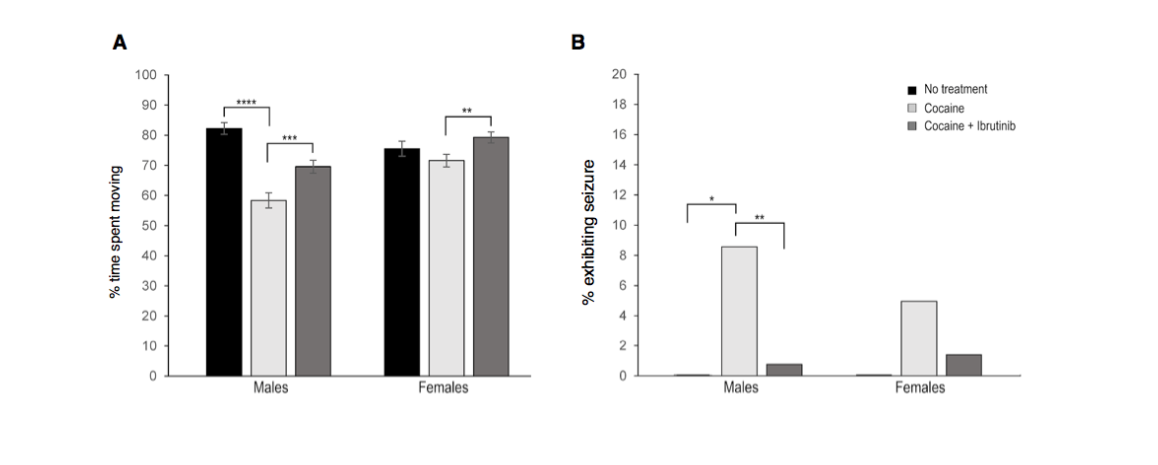Keywords: Regenerative Medicine, Remediation, Drug Discovery, Disease Treatment
Market Overview
Applications:
Cocaine use disorder, Drug addiction, Therapy, Ibrutinib, Repurposed drug development, Biomedical
Technical Summary:
Ibrutinib has been shown to prevent various neurobehavioral and neurotoxic effects of cocaine use. It is a covalent inhibitor of Bruton’s tyrosine kinase and influences intracellular cascades involved in the pro-inflammatory response, Ca+ signaling, and protein kinase activity. These processes are also involved in cocaine use and cocaine-induced seizures. This principle was tested utilizing the Drosophila melanogaster model to evaluate its effects on cocaine-induced phenotypes. The Drosophila dopamine transporter contains a binding site that can accommodate cocaine and exposure to cocaine gives rise to motor responses that resemble behaviors observed in rodents. In addition, flies express an ortholog of Brutons’ tyrosine kinase, BTK29A, in the central brain. Startle behavior and the prevalence of seizure activity was measured in male and female flies following acute consumption of solid food, solid food supplemented with cocaine, or solid food supplemented with cocaine and Ibrutinib. It was observed that both male and female flies that consumed Ibrutinib with cocaine spent more time moving than flies that only consumed cocaine. Male flies that consumed Ibrutinib and cocaine showed a significant decrease in the prevalence of seizures. Fewer cocaine-induced seizures were also observed in Ibrutinib-treated females, but this observation did not reach statistical significance since the incidence of cocaine-induced seizures was lower in females than in males.

Advantages:
- Acts on central brain structures, counteracting neurological pathways for CUD seizures and addictiveness.
- Reverses patterns of cocaine gene expression, allowing for CUD psychosocial intervention techniques to become more effective.
- Ibrutinib is already an FDA-approved medication for chronic lymphocytic leukemia, making it an optimal option for CUD treatment, which currently has no FDA-approved medication.
Technology Overview
State of Development
Proof of Principle
Patent Type
N/A
Category
Serial Number
63/071,596
CURF Reference No.
2022-008
Inventors
Robert Anholt and Trudy Mackay
For More Info, Contact:
Interested in this technology?
Contact curf@clemson.edu
Please put technology ID in subject line of email.
Contact
Latest News from CURF
Stay up-to-date with the latest trends in the innovation and research industry. Sign up for our newsletter to see how CURF is making a difference and impacting the economy where we live.









